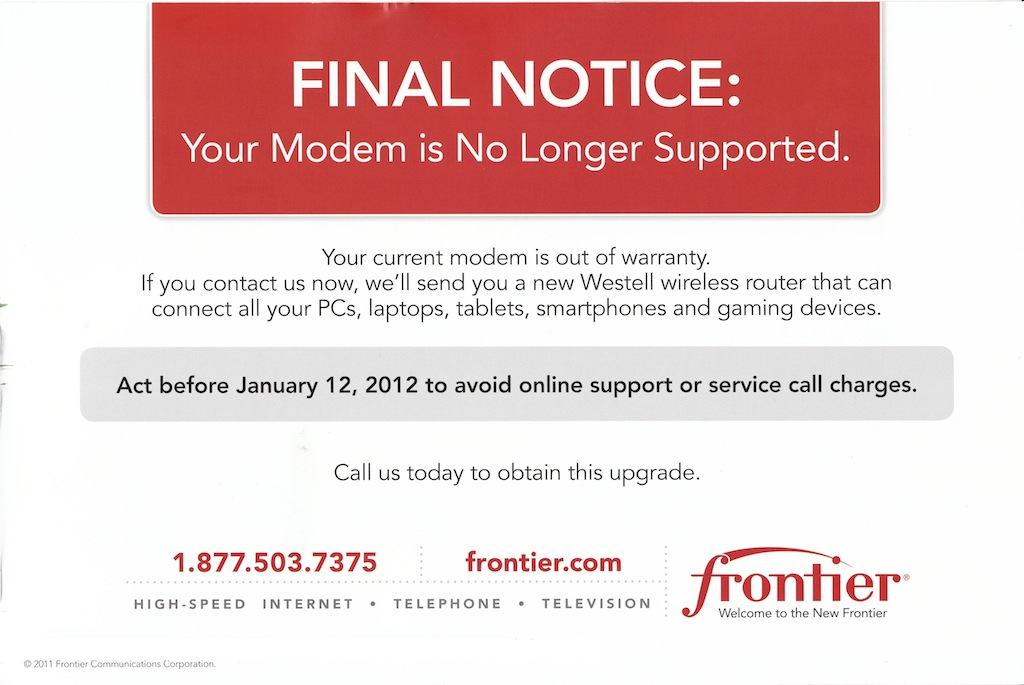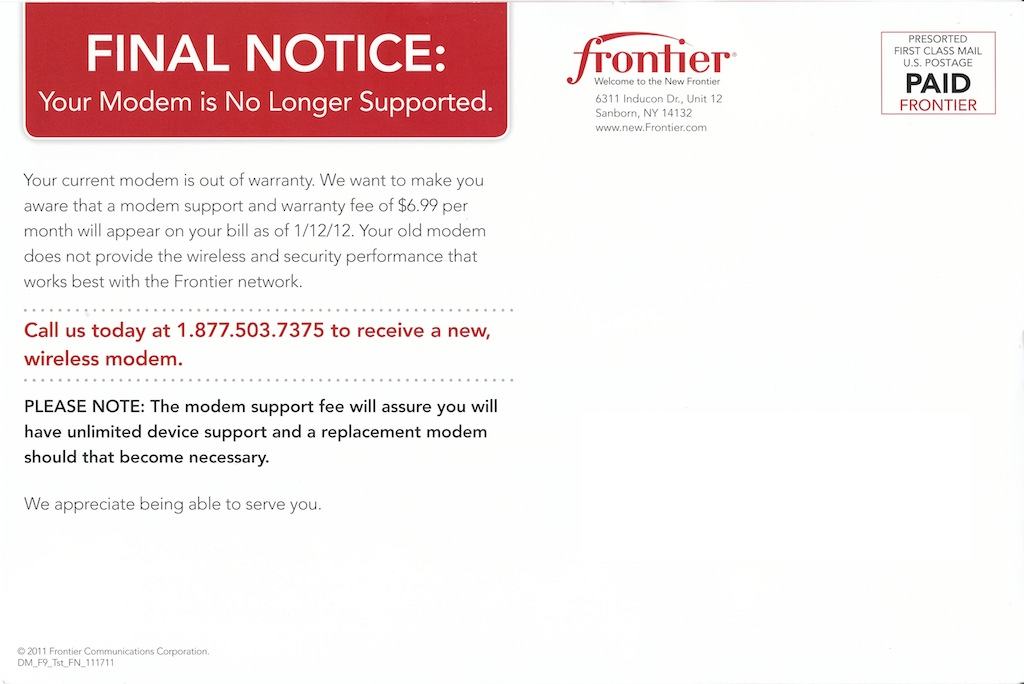While Buffalo residents fume about missing the latest matchup between the Buffalo Sabres and Edmonton Oilers, the city of New York is pressuring Time Warner Cable to start compensating their subscribers for the loss of one of the most expensive channels on the basic cable dial.
New York City Comptroller John Liu has asked the Department of Information Technology and Telecommunications, which oversees cable franchise agreements for the city, to make certain Time Warner compensates customers for the loss of MSG and MSG Plus, both removed over a contract renewal dispute.
“Consumers deserve to be compensated for what they have gone through as a result of this dispute, plain and simple,” Mike Loughran, a spokesman for Liu, told Bloomberg News in an e-mail. Loughran said the comptroller’s office would discuss compensation plans with the Department of Information Technology and Telecommunications.
Time Warner says it has already effectively compensated impacted customers, primarily in New York State, with a free month of the company’s added-cost sports programming tier. Time Warner has also replaced the two MSG networks with NBA TV and NHL Network, which are now likely to remain part of the basic package even if Time Warner reaches an agreement with MSG. (Sorry football fans, NFL Network is still too costly to be deemed a suitable replacement network.)
Time Warner says there is no way they would pay MSG’s asking price for a renewed carriage contract, which the cable company says represented a 53% rate increase.
As Stop the Cap! reported earlier, the dispute is renewing rumblings about how pay television providers handle expensive sports programming. An increasing number of cable executives are considering breaking sports networks out of the basic cable package and forcing interested sports fans to pay extra to receive them. But sports remains a lightning rod issue for many pay TV companies, both among subscribers and politicians. Disrupt a major sporting event at your peril — something Cablevision learned from an earlier dispute with Fox.
In Buffalo, some customers are dropping Time Warner Cable for Verizon FiOS, at least where that fiber to the home service is available. Residents served by Frontier Communications or Verizon’s DSL have fewer choices — one of two satellite TV companies.
Verizon already carries a standard definition feed of MSG Networks. AT&T announced this week it was adding MSG in HD to its U-verse lineup in Connecticut. MSG has spent this week rubbing salt in Time Warner’s wounds, throwing MSG viewing parties in both Buffalo and New York City. Now that the city of New York is pressuring Time Warner to cough up refunds as much as $4 or more a month for the loss of MSG, the dispute could prove increasingly expensive. Some customers tell Stop the Cap! they are already receiving informal compensation for the loss of MSG after contacting the cable company by phone or e-mail to complain.
“I wrote Time Warner on their web contact form and a representative gave me a $5 courtesy credit for the loss of the channels after I explained I was shopping around for another provider,” writes Neil Thomowski who lives in Cheektowaga, near Buffalo.
[flv width=”360″ height=”290″]http://www.phillipdampier.com/video/WNLO Buffalo Sabres fans dismayed by cable dispute 1-3-12.mp4[/flv]
Buffalo Sabres fans who have Time Warner Cable were left in the dark Tuesday night and couldn’t watch the match-up between the Sabres and the Edmonton Oilers. WNLO in Buffalo has the story. (2 minutes)


 Subscribe
Subscribe






